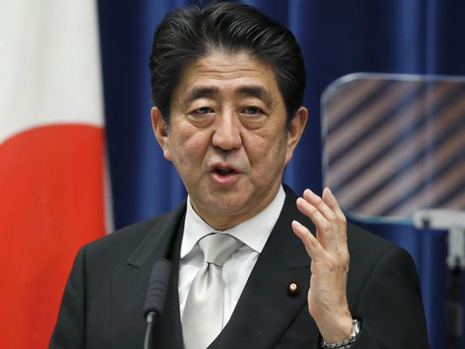Japan surrendered on Aug. 15, 1945, ending a conflict that began, by most accounts, with Japan’s invasion of China in 1937 and ended with the atomic bombings of Hiroshima and Nagasaki.
While Abe likely will uphold a landmark apology issued by then-Prime Minister Tomiichi Murayama on the 50th anniversary in 1995, experts don`t expect him to break new ground.
“The statement will be fairly bland. It will be somewhat evasive. It will accept war guilt in a very general, unspecific way, without going into details about the nasty stuff that the Imperial Army did,” said Robert Kelly, an associate professor of political science and diplomacy at Pusan National University in South Korea.
“It won’t change much because it won’t really say anything,” Kelly said.
Leaders in China and South Korea have refused to meet with Abe one-on-one since he took office for a second term in December 2012, largely because of disputes over Japan’s wartime conduct and colonial era policies.
Arguments between Japan and South Korea over wartime “comfort women” — women and girls forced into sexual slavery — and forced labor have stonewalled Washington’s efforts to forge closer cooperation between the two countries. Both nations are key American allies as Washington looks to confront an erratic and nuclear-armed North Korea and a stronger and more militarily assertive China.
Earlier this week, an advisory panel appointed by Abe condemned Japan’s colonial rule in Korea, which lasted from 1910 to 1945, and wartime conduct in China.
Japan “caused much harm to various countries, largely in Asia, through a reckless war,” the panel reported. “The responsibilities of the Japanese government and military leaders from the 1930s and beyond are very serious indeed.”
Abe came into office promising to focus on boosting Japan’s long-stalled economy. But he immediately drew fire by visiting the controversial Yasukuni Shrine – where 14 wartime leaders convicted of war crimes are enshrined. The move cast doubt on his commitment to previous government apologies.
Prime Minister Junichiro Koizumi endorsed the Murayama apology on the 60th anniversary in 2005, increasing the pressure on Abe to do the same this year.
“It`s hard to think that (Abe) would offer a straight apology, and even if he did, it cannot possibly be sincere given his long track record of historical revisionism,” said Koichi Nakano, professor of comparative and Japanese politics at Sophia University in Tokyo. “He has set himself for a delicate balancing act.”
Abe maintains close ties to conservative causes. His key supporters have sought to revise school textbooks and have even publicly accused the United States of tricking Japan into the attack on Pearl Harbor in December 1941.
Abe has expressed sympathy for wartime "comfort women," but questioned whether Japan’s military played an active role in recruiting them. Members of Abe’s Liberal Democratic Party have defended his stance on Japan’s wartime behavior. His grandfather, Nobusuke Kishi, was a wartime leader who was imprisoned for war crimes but released without charges. He later became prime minister.
Jennifer Lind, an associate professor of government at Dartmouth College in New Hampshire, said the Japanese should focus more on their wartime behavior than what Abe says about it.
“We should ask, ‘Do Japan’s people understand the suffering they inflicted on other peoples? Do their leaders show a commitment to remembering it, and are the people educated about it’,” said Lind, a 2014 Fellow at the Sasakawa Peace Foundation in Tokyo.
More about:
















































